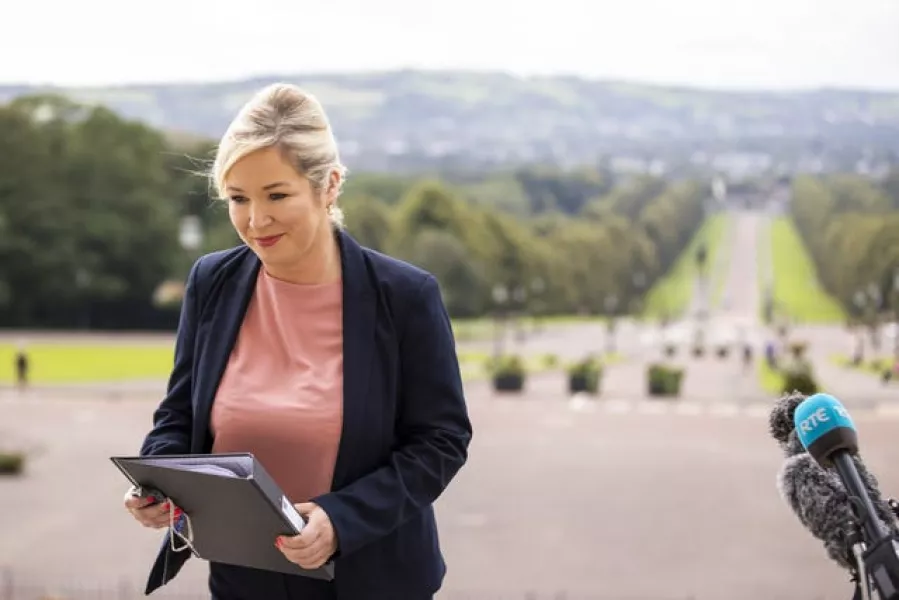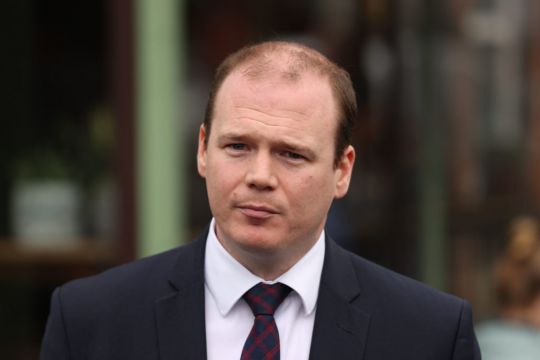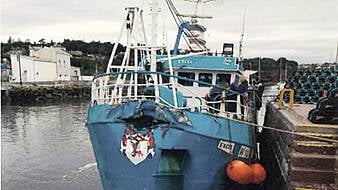Northern Ireland is no longer in a space where vaccine passports are required, a DUP minister has said.
Economy Minister Gordon Lyons said he did not think using vaccine certification to gain access to events or hospitality venues was the right policy for the region.
His comments suggest the issue may become a point of friction for parties within the Stormont Executive, given Sinn Féin has made clear it would be open to vaccine passports if the move was recommended by health chiefs.
The SDLP last week called for the introduction of a scheme as a way to boost vaccination rates.
The policy has been identified as one way to mitigate a relaxation of the one-metre social distancing rule that still applies to indoor hospitality and entertainment venues in the North.
While authorities in England have shelved plans for vaccine passports, Scotland and Wales are introducing schemes next month.
A scheme to gain entry to pubs and restaurants in the Republic, which has been credited with driving up vaccination rates among young people, is set to end on October 22.
Stormont ministers are meeting on Monday evening to discuss the social distancing rule amid calls from the business sector for the restriction to be dropped.
Mr Lyons said he wanted to see social distancing measures removed as soon as possible, because of decreasing Covid transmission and hospital admission rates in the North.
But he said did not believe vaccine certification was an appropriate way to mitigate the removal of the restriction.
“I don’t think that we are in that space any more,” he said.
“We’ve almost got 90 per cent of our adult population vaccinated, and you are now seeing the impact that that is having on the rate of transmission and hospitalisations as well.”

Mr Lyons noted that the scheme was coming to an end across the border and the plan had been dropped in England. He also flagged issues with the initiatives planned for Scotland and Wales, including a legal challenge against the Holyrood government’s plan.
“I’m not convinced that this is the right policy for a number of reasons,” he told BBC Radio Ulster.
Mr Lyons said the scheme would present “legal and human rights issues”.
“I think it is important that we take those on board and look in particular at who that’s most likely to affect,” he said.
“I think we also have to look at how this would be implemented as well — would this become a permanent feature, would it be extended beyond indoor events to other public events to hospitality?
“What about people then who work in those sectors. If you have a job would you need to have a vaccine passport as well? What systems would need to be in place for it to happen, what additional burdens would there be for business?”
Sinn Féin deputy First Minister Michelle O’Neill has raised human rights concerns about such an initiative.
However, last week she suggested she would still be “very open” to a passport scheme if it could be demonstrated it could contribute to the “greater good” of tackling the spread of Covid-19.
Her party colleague Chris Hazzard told the BBC: “We’ve always been clear that we want to follow the medical and scientific advice and if that advice is that the best way forward is to look at that (passports), then we’re absolutely willing to look at that.
“It has never come forward as an option as far as I understand from the CMO (chief medical officer Professor Sir Michael McBride) to be able to look at that.
“So if that’s on the table then we’ll be more than happy to do so.”







